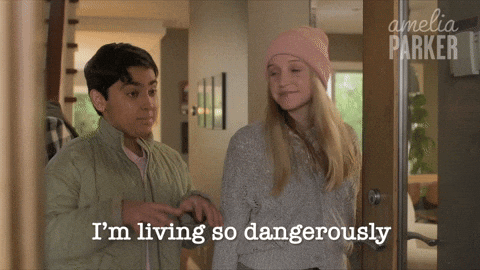hi aska,i just accepted my utsg offer and am already stressed about the course selection process. i tried using the timetable builder but i don’t understand it 🙁 do i select all the tutorials and lectures listed for a specific course? what does this mean?: “Students enrolled in LEC0101, LEC2000 & LEC2001, must enroll in one of TUT0101 to TUT1702; TUT2801; or TUT5101 to TUT5201.” do i take all vic one courses? is it okay if most of the courses i want to take are 0.5 credits?thank you in advance!
hey there,
big congrats to you and welcome!
first, i gotta say, the immediate stress and confusion about course enrolment is absolutely normal. when i was in your shoes and dealing with this for the first time, i remember going crazy over how confusing everything was — it always felt like i was missing something important that everyone else heard about!

but the good thing is that course enrolment does make more sense once you’ve done it a bunch of times. so maybe i can help clear some things up.
enrolling in LEC and TUT
so you’re asking what this means on the timetable builder: “students enrolled in LEC0101, LEC2000 & LEC2001, must enrol in one of TUT0101 to TUT1702; TUT2801; or TUT5101 to TUT5201.”
great question! i am realizing that wording is so confusing?! not very swag of them :(. it’s interesting because i’ve never seen instructions like this for course enrolment… usually it’s simple and you just enrol in one lecture and one tutorial. but — uhhh i’ve actually never had to enrol in a course like this before.
*i leave you in the room and do some digging through the world wide web*

*i return looking more confused*

okayyyy so i’m gonna guess that the course you’re asking about is SOC100? because the only place those exact instructions can be found on the internet is in the SOC100 syllabus from fall 2023. but when i look at the timetable builder for fall 2025, the SOC100 tutorial and lecture numbers look a bit different, so those instructions wouldn’t apply anymore. in general, just know that you should ignore the enrolment instructions of past syllabuses, since they change every year.
for now, it’s too unclear since the timetable builder doesn’t have all the enrolment instructions or details up for fall/winter yet. once more details show up on the timetable builder and you’re able to start adding courses to your enrolment cart on acorn, things will hopefully make more sense.
but if you still wanted to know, i can tell you what i think those instructions mean. i think if you’re enrolled in one of the three lectures, you must choose one tutorial in one of the three ranges — so one tutorial overall. either:
1. a tutorial between the numbers TUT0101 and TUT1702
2. just TUT2801
3. a tutorial between the numbers TUT5101 and TUT5201
so in the end, you could be enrolled in LEC0101 and TUT0101, for example. and if you wanted to know what’s behind my reasoning for that, it’s just based on familiarity with how U of T writes their lists of options. see more on that here.
ultimately, it’s kinda really hard to give an exact answer on this unless i knew exactly what the course code was so that i could take a look at how it looks on acorn myself. but anyways, if i’m wrong about the SOC100 syllabus thing… haha ignore that you didn’t hear me. if i’m right about it… of course i’m right.

what are lectures and tutorials
i get that all this course code stuff can be confusing if no one’s explained it before. so i do want to quickly go over what lectures and tutorials are.
basically, just think of “lecture” as the main class time. here, your professor teaches you things, uses a laser pointer at a powerpoint slide, and yaps away while you rapidly type notes at the speed of light. every single course will have a lecture, noted as “LEC” on the timetable builder.
some courses will also have “tutorials”, noted as “TUT” on the timetable builder. here, you listen to your TA (teaching assistant) yap away instead, and depending on your program, they’ll either go over problems or go over the readings, and you’ll do a lot of class discussion stuff.
tutorials are almost always offered in larger courses (think more than 80 people), but can also be used in classes as small as 50. the main idea of tutorials is to break up the crowd and give you the chance to learn in smaller groups.
like for example, if you’re in a class of 200, and there’s only one prof, how would the prof answer all 200 student’s questions during class time? that would waste a lot of time and make the prof go a little insane. so instead, we get broken up into groups of say, 20, to get the chance to ask specific questions, get one-on-one help, and engage in discussion about course content with other students.
so tutorials are more similar to the high school classroom experience. and keep in mind that you’re often required to attend them — especially if you have participation marks or presentation projects involved.
vic one courses
do you have to take all vic one courses?
hmmmmm. so i’m gonna assume that you’ve already applied and been accepted to the vic one program. because in order to take vic one courses, you would need to get into the program first. like, it’s a whole separate application to the U of T application. but you know that, right? 😀
once you’re in, you would know that there are eight streams, and you would have chosen your stream during the application. here’s the catch, though: you can only take courses within the stream you got into. so for example, if you got into the chambers stream, you won’t be able to take courses from the pearson stream, gooch stream, or any of the other streams.
but, the good thing is that while taking vic one courses, you are allowed to take courses offered at other colleges. it says so on their FAQ page. so in short, no, you are not limited to only vic one courses.
in fact, you can’t actually take only vic one courses during your first year. you’re gonna have to take other courses too, because vic one courses alone can’t fill up your course schedule.
why is that?

well, if you take a look at the vic one course offerings on the timetable builder, you’ll see that some streams offer two fall 0.5 courses and two winter 0.5 courses, while other streams offer two 1.0 courses.
adding up either of these options would leave you with 2.0 credits completed by the end of the year. BUT to finish first year, you’re going to have to take at least 4.0 credits.
so you’ll have to take courses outside of vic one to meet your degree requirements. does that make sense?
finally, if you didn’t actually apply to vic one yet but wanted to join it, you’ve still got a chance! the third application round is still open until june 9, and you can find out more about applying here.
half credit courses
yes, it is absolutely fine if most or even all the courses you want to take are 0.5 credits. these courses are worth half a credit, and are more common than courses that are worth one full credit.
half-credit courses will last for one semester, which is half of the school year. for example, it can start in september and end in december, OR start in january and end in april. meanwhile, full-credit courses will last for the whole school year, from september to april.
anyways, these were all really great and very valid questions. i’m glad you asked rather than languishing in confusion! that’s not fun, i would know.

so i hope this was helpful, feel free to ask again if more come up!
over and out,
aska


































